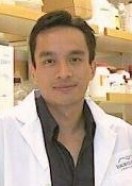
Dr Christopher Ong, PhD
Position:
- Senior Scientist, Vancouver Prostate Centre
- Assistant Professor, Department of Surgery, University of British Columbia
Websites:
Biography:
Dr Ong's specific research interest revolves around studying disease mechanisms at the molecular and cellular levels. A strong underlying basis of his research efforts is in translational research with the aim of translating laboratory-based discoveries into new therapeutics. In particular, Dr Ong's research interests are primarily focused on understanding the signal transduction pathways that control a variety of cellular responses. He believes that insights into these pathways will guide the development of new molecular targeted therapies for treating a variety of diseases including cancer and immune related disorders.
The primary focus of Dr Ong's research program is to understand the molecular mechanisms that govern the progression of prostate cancer from a state of androgen sensitivity to hormone independence with the hope of developing novel therapeutic strategies to prevent or delay the progression of prostate cancer to androgen independence. His primary focus has been on the PTEN tumour suppressor gene, which is among the most frequently mutated genes in cancer. One or both copies of PTEN is mutated in over 70% of primary prostate cancer cases and PTEN is completely inactivated in over 50% of advanced prostate cancer cases, which correlates with a poor prognosis.
Dr Ong’s laboratory is currently studying how mutations of that gene confer protection of prostate cancer cells from cell death and resistance to chemotherapy, as well as how loss of PTEN influences the progression of prostate cancer cells to androgen independence. Based on observations to date, Dr Ong is testing the potential utility of several classes of small molecule drugs that act to down-modulate the PI3K survival pathway and other growth and survival pathways in the treatment of prostate cancer. These novel compounds have tremendous promise as lead compounds for development of therapeutics that target a primary defect associated with prostate cancer and other malignancies. Dr Ong's laboratory is also involved in the development of unique prostate tumour model systems, which are used to characterize the function of a number of genes in normal and malignant prostate biology.
Best publications:
Hayashi N, Peacock JW, Beraldi E, Zoubeidi A, Gleave ME and Ong CJ. Hsp27 silencing coordinately inhibits proliferation and promotes Fas-induced apoptosis by regulating the PEA-15 molecular switch. Cell Death and Differentiation. Advance online publication 16 December 2011
Peacock JW, Palmer J, Fink D, Ip S, Pietras EM, Mui AL, Chung SW, Gleave ME, Cox ME, Parsons R, Peter ME, Ong CJ. PTEN loss promotes mitochondrially dependent type II Fas-induced apoptosis via PEA-15. Mol Cell Biol. 2009 Mar;29(5):1222-34. Epub 2008 Dec 22
Ong, CJ, Ming-Lum, A, Nodwell, M, Ghanipour, A, Yang, L, Williams, DE, Kim, J, Demirjian, L, Qasimi, P, Ruschmann J, Cao L-P, Ma, K-W, Chung, SW, Duronio, V, Andersen, RJ, Krystal, G and Mui, ALF. 2007. Small molecule agonists of SHIP inhibit the phosphoinositide 3-kinase pathway in hemopoietic cells. Blood. 110(6):1942-9.
Wong JT, Kim PTW, Peacock, JW, Yau, TY, Mui ALF, Chung SW, Sossi V, Doudet D, Green D, Ruth TJ, Parsons R, Verchere CB, Ong CJ. 2007 Pten haploinsufficiency promotes insulin hypersensitivity. Diabetelogia. 50(2):395-403
Bertram, J., Peacock, J.W., Tan, C., Mui, ALF, Chung, SW, Gleave, ME, Dedhar, S. Cox, ME and CJ. Ong. 2006. Inhibition of the PI3K Pathway Promotes Autocrine Fas-Induced Death of PTEN-Deficient Prostate Cancer Cells. Cancer Research. 66(9):4781-8.
Castration Resistant Prostate Cancer, Transgenic models, Cell signaling.


